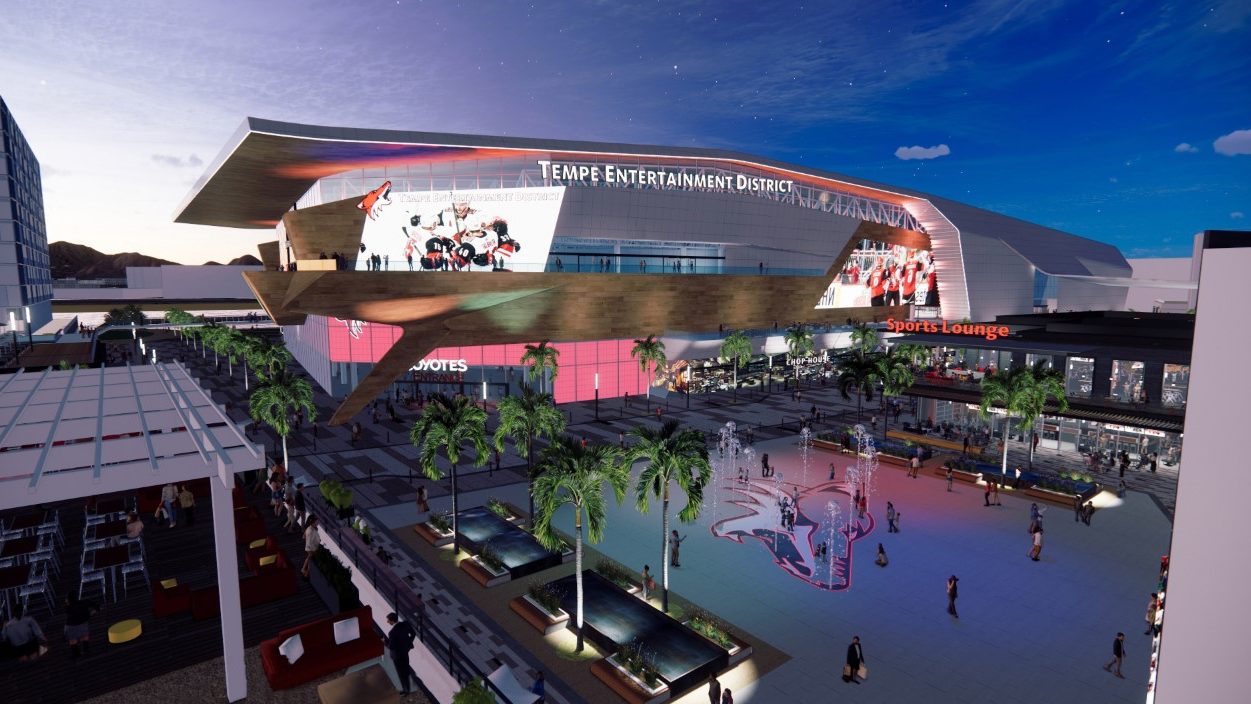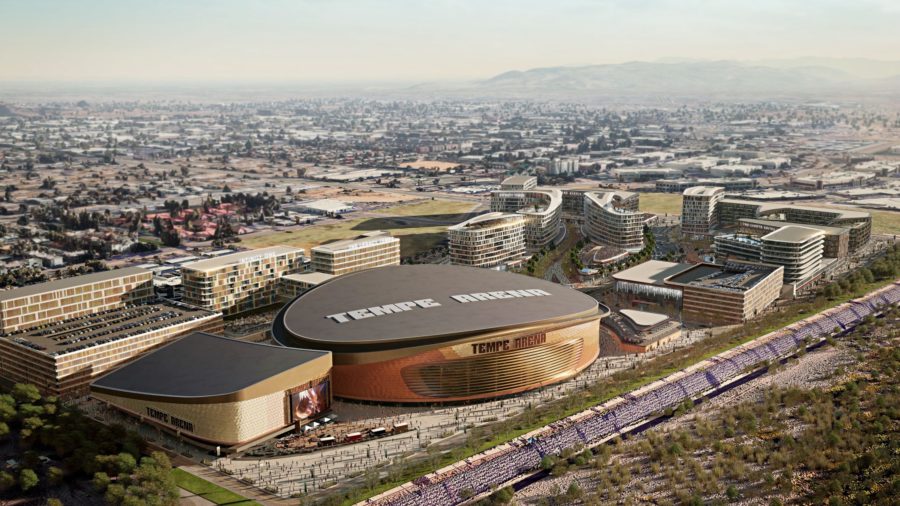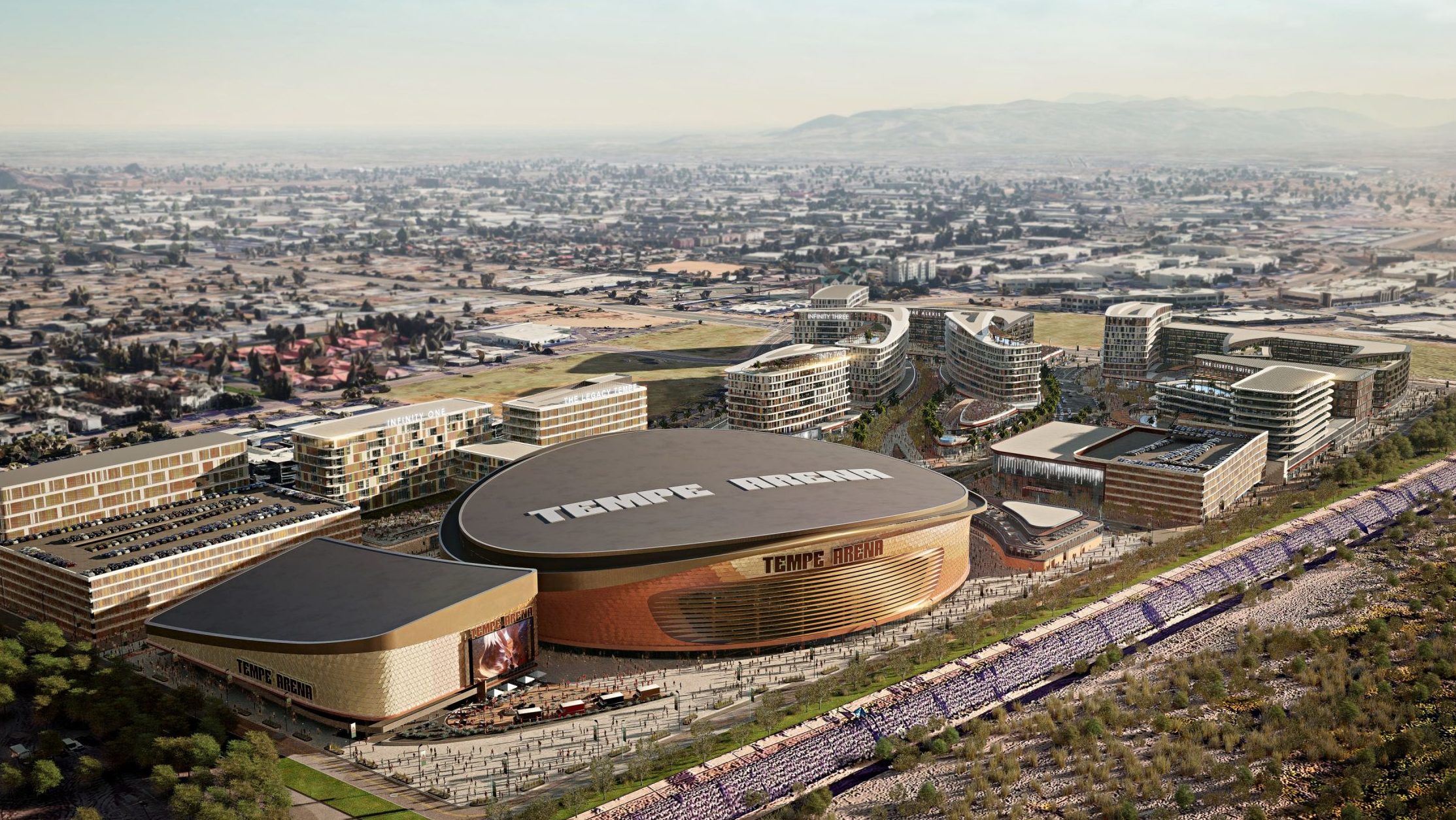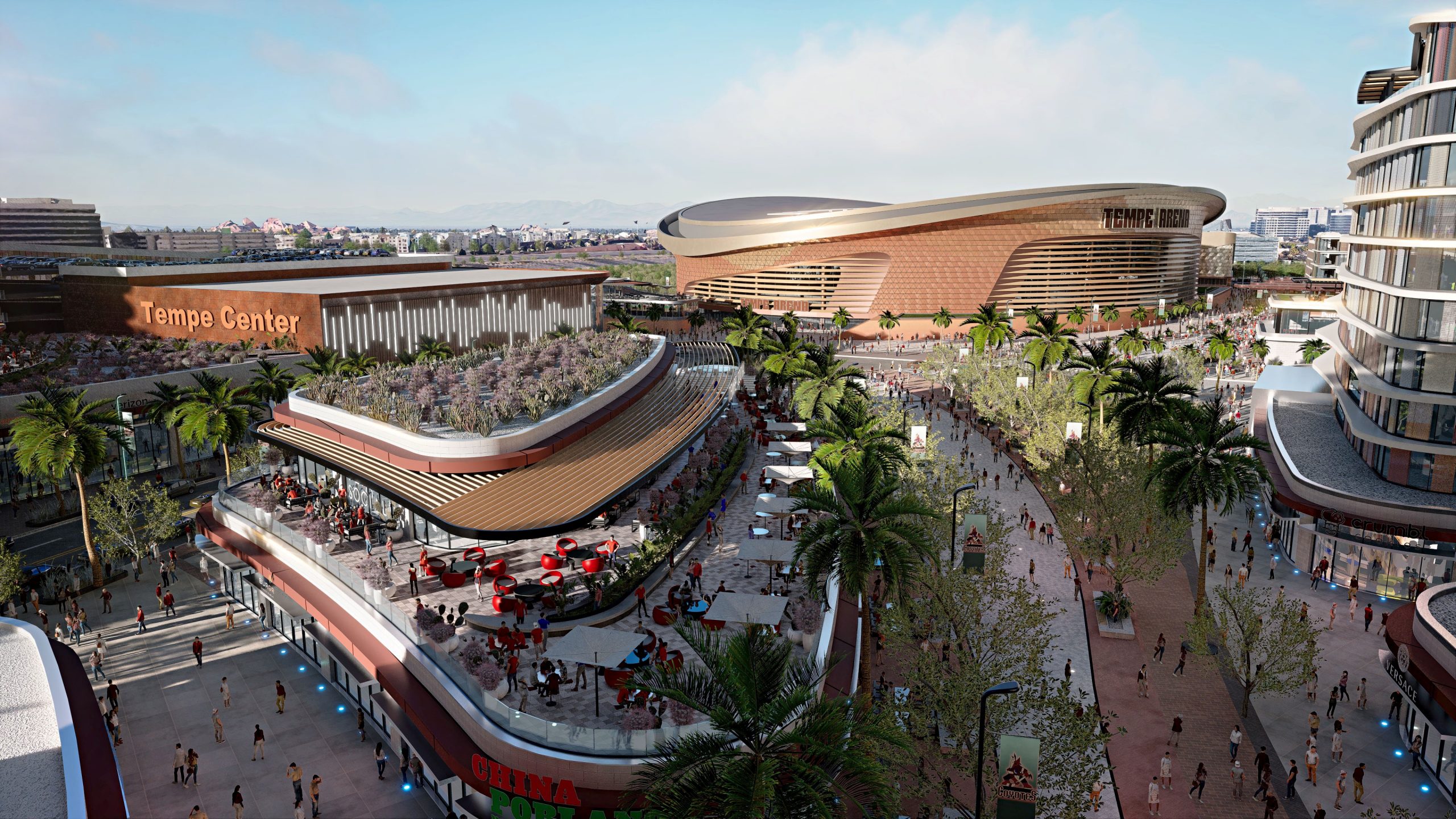A Phoenix City Council meeting on Wednesday could bring closure to a dispute between the city and neighboring Tempe. A lawsuit filed in March 2023 by the city of Phoenix pushed back against the proposed Arizona Coyotes’ purchase of Tempe land to build an arena, and Phoenix’s argument centered around noise issues that could have limited operations and improvements to Phoenix Sky Harbor International Airport.
According to the agenda for Wednesday, Phoenix’s city council will request authorization to settle the two cities’ legal challenges stemming from interpreting a 1994 intergovernmental agreement (IGA) between the two Valley cities.
“The City of Tempe and the City of Phoenix recognize that Phoenix Sky Harbor International Airport and accompanying commercial passenger traffic are a key part of the local economies of the respective cities as well as the region,” the agenda reads.
“Therefore, the parties chose to work in the spirit of cooperation to resolve the litigation and protect the airport while preserving the economic vitality of both cities. To that end, this amendment will allow the City of Tempe and the City of Phoenix to work collaboratively to address noise concerns and ensure transparent communication with residents. Both cities strive to uphold a balanced approach to community well-being and airport operations.”
The 2023 complaint in Maricopa County Superior Court had Phoenix, the owners and operators of Sky Harbor International Airport, suing Tempe for a breach of contract, “asking the court to rescind Tempe’s recent zoning and land use changes and prohibit future residential uses in an area that the Federal Aviation Administration says is incompatible with residential development.”
The legal action regarded a 1.2 square-mile area that is exposed to noise levels of a high degree from the nearby airport.
Both cities in that 1994 agreement said they wanted to keep planes away from homes in one of the airport’s flight paths due to safety and noise. Phoenix had said Tempe would break the agreement because the Coyotes arena plans also included residential units.
The 1994 IGA laid out a plot of land — the failed Coyotes arena was to be built there — where the noise levels would surpass the 65-decibel day/night level (DNL) that the Federal Aviation Administration advises against surpassing for residential zoning.
The Coyotes and their development firm, Bluebird Development, a month later countersued the city of Phoenix, asking for $2.3 billion in damages.
The NHL franchise ultimately lost a public vote in May 2023 to win the land, pushing them out of the picture.
Owner Alex Meruelo pursued a piece of Phoenix land via auction before ultimately deciding, with support from the NHL, to sell the team to a Utah ownership group.
Phoenix’s proposed amendments to the 1994 intergovernmental agreement with Tempe
The amendment, if passed, will include the following terms and conditions, according to the Phoenix meeting agenda:
For all Tempe land in the 65 DNL contour (the high noise area)
· No single-family residential;
· Avigation easements/release of liability;
· Noise disclosures to warn residents of their exposure to high noise;
· No obstructions (FAA Approval);
· Support to address identified hazards to navigation;
· Tempe will not oppose, in any proceeding, Phoenix’s Comprehensive Asset Management Plan projects;
· Tempe understands Phoenix will continue to formally object to any incompatible use proposed in Tempe.
On Tempe-owned land in the 65 DNL contour, if Tempe allows residential, then Tempe
will:
· Restrict all multi-family residential to lease only;
· Indemnify and defend Phoenix for any complaints about noise, vibrations, emissions or other disturbances;
· Require noise insulation;
· Ensure all stipulations and restrictions to run with the land;
· Agrees restrictions will apply to any land acquired by Tempe, except to the extent the land is already developed, or the land is one of the already entitled properties identified in the amendment and purchased through a GPLET deal.
For Privately-Held Parcels in the 65 DNL contour, Tempe agrees:
· No new residential except for parcels identified in the amendment;
· To notify the Aviation Department of applications to pursue new or intensified residential;
· Submit a staff recommendation of disapproval on any such application;
· If the Tempe City Council still approves residential on any of the identified parcels, Tempe will stipulate landowner to noise insulate (NLR 25db) and equally share in legal defense fees should Phoenix receive a claim related to noise, vibrations, or emissions.
Phoenix agrees:
· That both parties will dismiss their claims with each party bearing its own legal fees;
· To waive claims under the IGA for any past actions related to the IGA;
· To conduct periodic 65 DNL contour updates and enhance collaboration on noise issues;
· That it will not treat itself differently than Tempe regarding land uses in the 65 DNL contour;
· That it understands Tempe reserves its right to object to any proposed 4th runway.
Background
The city of Phoenix announced in March 2023 that its aviation department was taking legal action against Tempe for the planned residential development that was part of the new entertainment district that included an arena for the Coyotes.
Phoenix director of aviation services Chad Makovsky said in a press release that his department was not against an arena in the area. But he pushed back against the entertainment district plans to ensure that “Tempe lives up to its commitments to protecting our state’s largest economic engine – Phoenix Sky Harbor International Airport … and the communities surrounding the Airport who depend on the long-standing agreement between our two cities.”
Tempe Wins, the organization supporting the Coyotes’ plans, called the lawsuit hypocritical.
“Is this really about Phoenix protecting a handful of apartment units in Tempe or is it really a matter of Phoenix protecting the interests of its downtown sports franchises at the expense of Tempe taxpayers who stand to gain many millions of dollars in revenues and benefits?” a statement to KTAR News 92.3 FM said. “Unlike other stadium deals and developments in other cities including Phoenix, the Tempe proposal costs taxpayers nothing. Indeed, it results in hundreds of millions of dollars in net positive benefits for taxpayers.”
Earlier in 2022, before the Tempe City Council approved sending the Coyotes arena plan to a public vote, the aviation department sent mailers to Phoenix, Tempe and Scottsdale residents around the airport’s east flight path over the Salt River, pushing against the planned Tempe project.
Then, Phoenix officials worried noise complaints from new development would lead Sky Harbor to change flight paths, creating backups and more safety and noise issues.
The Coyotes and their development company sued Phoenix a month later “seeking damages because Phoenix is knowingly and intentionally interfering with its business because Bluebird relied on Sky Harbor’s previous statements indicating it would not be in opposition.”
“We will not stand for Phoenix bullying Tempe and will vigorously push back on Phoenix’s shenanigans,” the statement from the group’s public relations firm said. “In addition to this claim, the Coyotes and Bluebird will continue to investigate Phoenix and Sky Harbor’s use of taxpayer dollars to interfere with a neighboring city’s election. Furthermore, they will be seeking any and all communications, documents and negotiations between the City of Phoenix, Phoenix council members and Phoenix city staff with any and all developers and property/business owners within Phoenix city limits and similar proximity to Sky Harbor as Tempe Entertainment District.”



